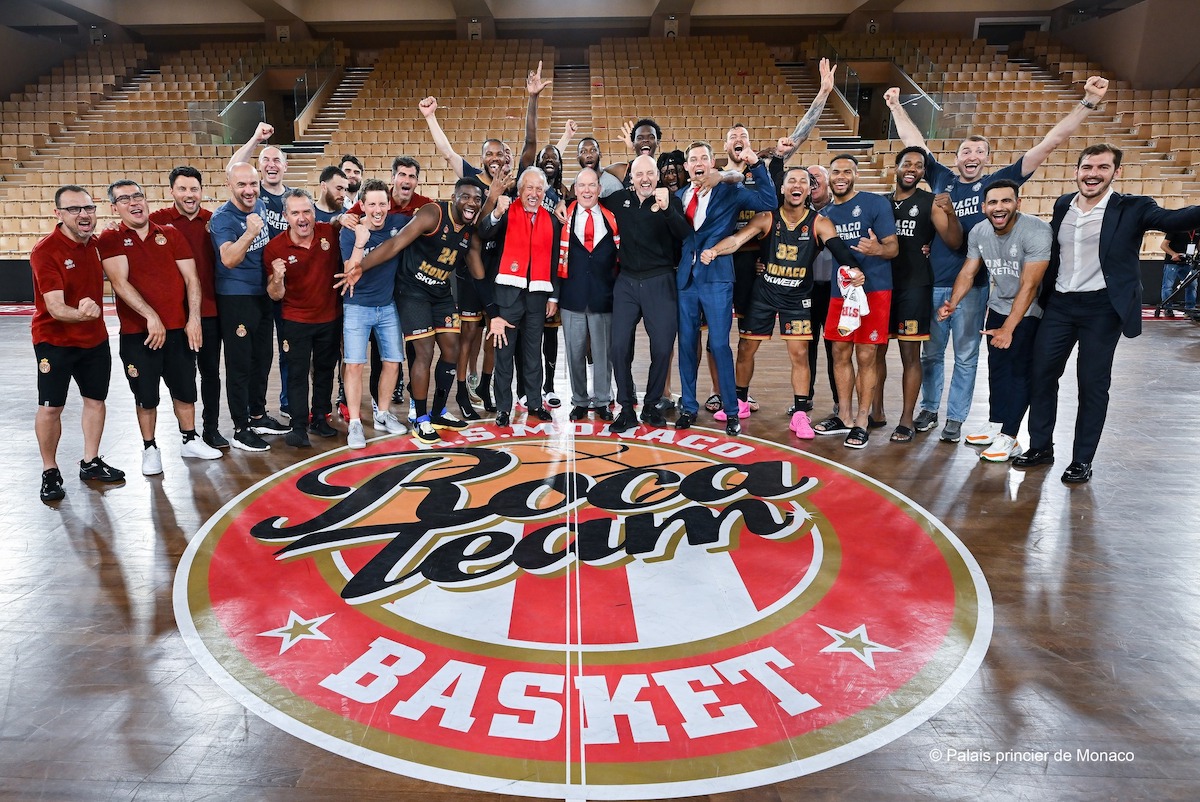In the space of just nine years, AS Monaco Basketball have gone from toiling in the French third division to a place in the Euroleague Final Four.
The Roca Team of 2014 is unrecognisable to the European behemoth that is about to take centre stage at the Euroleague Final Four in Kaunas, Lithuania on Friday. From the ownership to the players and even the stadium, everything has changed.
Les Monégasques were toiling in the third tier in 2013. By 2015, the team had not only secured back-to-back promotions, but also a new owner, in the form of Sergey Dyadechko. The businessman arrived in Monaco in 2012, having survived an assassination attempt in his native Ukraine, and under his stewardship, he would ultimately guide the Roca Team to the top of the European game.
The changing face of the Salle Gaston Médecin
Year after year, the club’s objectives have been revised upwards: “It’s a team with means,” said Amara Sy, who wore the colours of the Principality between 2015-2019.
They certainly put those means to good use. Just a year after promotion, the club won one of three consecutive Leaders Cups. But beyond France, the club set its sights on Europe; an objective they would soon achieve.
As the club grew, so did their home: the Salle Gaston Médecin. The hall, which sits within the Stade Louis II, was renovated in 2014 and 2015 before an expansion, in line with the Roca Team’s increasing profile, in 2016. Further expansions would be necessary in the future.
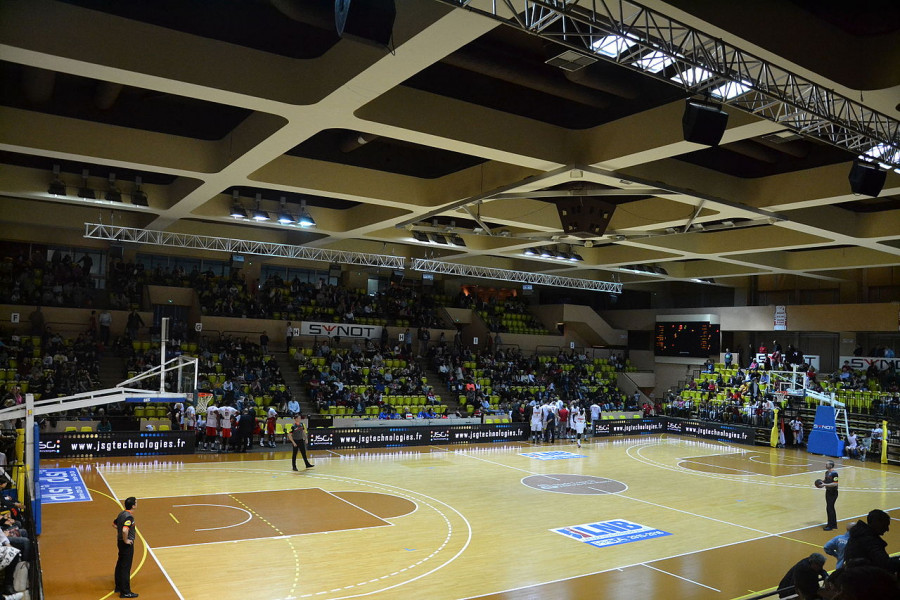
It was a 3,000-capacity court that hosted the EuroCup in 2019 in what would be just the first of many European adventures. Their first season was curtailed by the Covid pandemic, but they wouldn’t have to wait long to get their hands on some European silverware.
The following year, and in their first full season, Monaco won the EuroCup.
“As soon as there is the possibility of playing a full EuroCup season… Bam, we’re champions of Europe!” said former Roca Team player Sy. Their place in the Euroleague was booked.
Monaco profit from Russian expulsion
Consequently, further expansions of the hall were necessary. In 2021, the Salle Gaston Médecin could hold 4,000 spectators, slightly below Euroleague regulations, but which allowed them to compete in their first campaign in the top tier of European basketball.
In the space of just five years, Monaco had gone from a minnow to a giant, but they certainly weren’t a European giant quite yet. Their budget reflected that; it was one of the lowest of all Euroleague teams.
However, despite that, Monaco created a roster capable of competing; a roster which included Mike James, fresh from a spell with the Brooklyn Nets. He would be the talisman to guide Monaco to the playoffs, although their route to them was certainly unconventional.
Should Monaco not have made the playoffs, their future in the Euroleague would have been in considerable doubt. For large parts of the season, that looked like being the case, but a bold decision by the club’s director to bring back Sasa Obradovic to replace Zvezdan Mitrovic paid dividends.
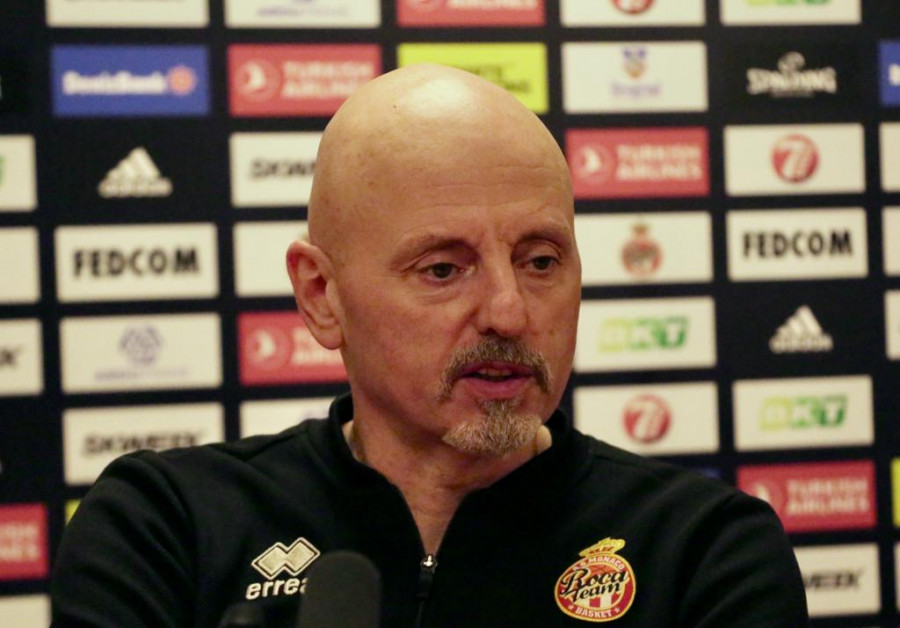
The returning Serbian coach oversaw a Monégasque surge up the table, although it still looked insufficient to lead them into the playoffs. Their qualification was sealed off the court rather than on it.
The expulsion of Russian teams from the Euroleague following President Putin’s invasion of Ukraine handed Monaco a lifeline and gave them a shot at reaching the playoffs, which they took.
Monaco knocked at the door of the Final Four but didn’t knock it down, losing a five-game thriller to Olympiacos in the quarter-finals. However, their run had ensured one thing: their continuation in the Euroleague for the following season.
Tides of change, but remnants of continuity
Midway through the season, the torch was passed from Dyadechko to Aleksej Fedoricsev, marking the end of an unequivocally successful reign as chairman. More sweeping changes were to come in the summer.
Just a year after its latest renovation, the Salle Gaston Médecin was once again transformed, lifting the capacity to over 4,600, whilst replacing the antiquated plastic yellow seats with a sleek wooden design.
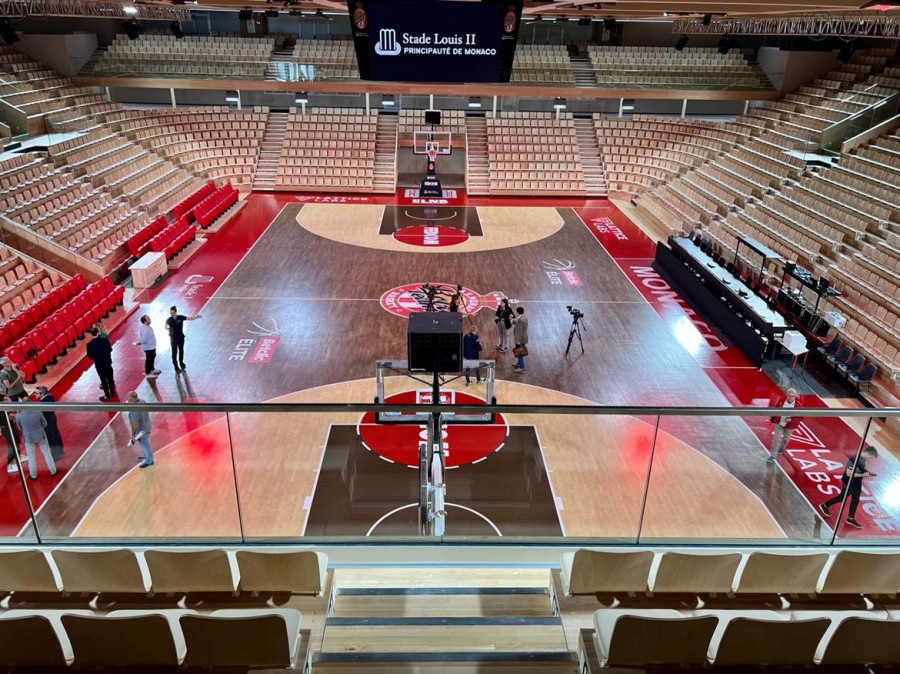
The changes to the roster were also wholesale. The team that took to the court at the beginning of the 2022/23 season was unrecognisable. By the start of the season, none of the 2020/21 cohort remained, and seven of the 12 players on the roster for this season were new to the Roca Team entirely.
However, the era of annual makeovers is over; continuity is the operative word.
“We want to build a stable roster and we want that continuity. We want to avoid situations where we’re significantly changing the roster. Once you reach Euroleague level, you cannot build up the team the same as you’ve been doing before,” Yefimov told Monaco Life at the start of the season.
The recruitment has been an unequivocal success. The arrivals of champion of France Élie Okobo and Jordan Loyd have lifted the creative burden off the shoulders of James. This year, it has been the collective that has triumphed rather than the individual. The result is a logical and comfortable qualification for the end of season play-offs, and beyond that the first Final Four qualification for a French team since 1997.
Whilst the Roca Team can certainly be defined by interminable change this past decade, there are figures of continuity that are inseparable from their success. Notably Yefimov, the club’s director who joined the club in 2015, and whose acumen and recruitment have allowed Monaco to build year-on-year.
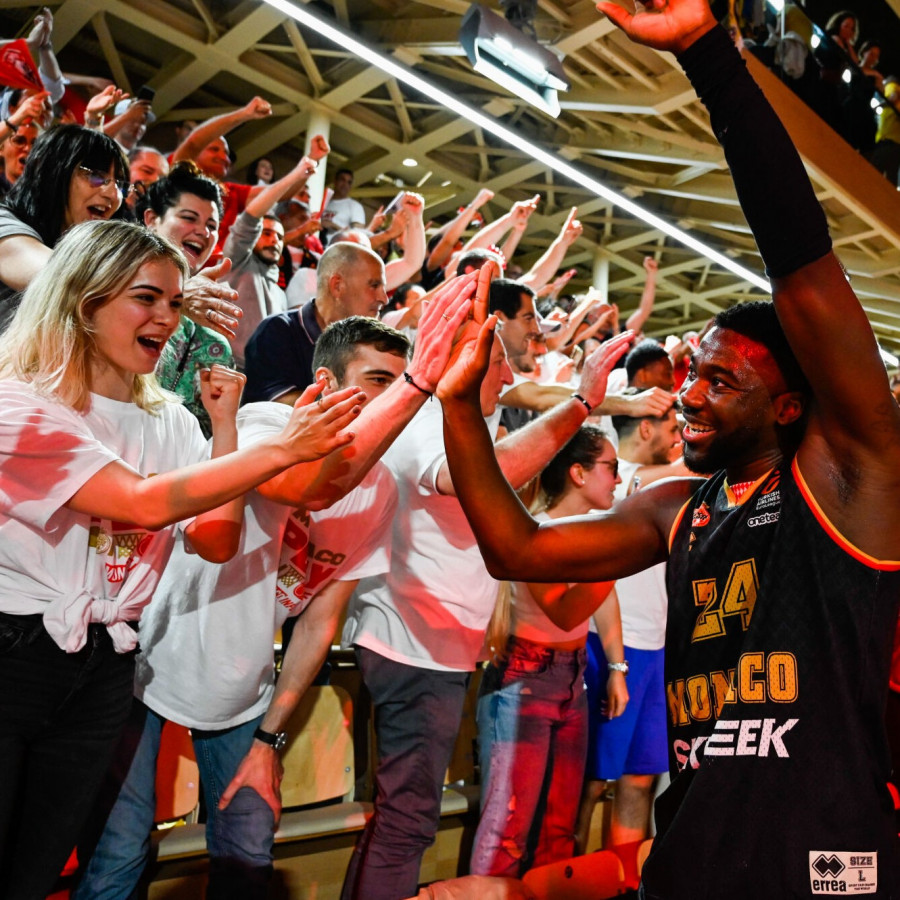
Then there is Ouattara, whose personal growth runs parallel to the club that he now captains.
“Our objectives are higher and higher as the seasons pass, and the club gives itself the means to reach them,” said the France international after the club’s qualification for the Final Four.
Monaco are now a European behemoth. With that status, the era of great and rapid change is over. For Yefimov, Fedoricsev and the rest of the Roca Team, the focus will turn towards consolidation.
After last year’s play-off qualification, Yefimov told Monaco Life, “I don’t believe anyone could have imagined where we ended up.”
The clearest sign of the club’s growth is that this season, no one can be surprised by Monaco’s presence in Kaunas. At the beginning of the season, Obradovic said, “We want to write another chapter in the club’s history.” And like each chapter in this “fairytale” story, the next one is always better than the last.
Sign up for the Monaco Life newsletter. For the latest news, follow us on Facebook, Twitter, and Instagram.
Photo credit: Michael Alesi / Palais Princier
